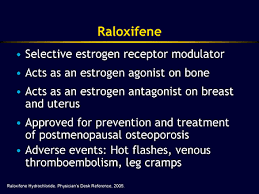A nurse is teaching a client who has active pulmonary tuberculosis about management of medication for the disease. Which of the following statements is appropriate for the nurse to make?
"You should anticipate taking medication to treat your disease for at least the next 3 years."
"You should report monthly to have your blood drawn to monitor kidney function while taking medication."
"You will need to take two or more medications to treat your disease."
"You will need to undergo tuberculin skin tests every 6 months while taking medication for your disease."
The Correct Answer is C
Choice A rationale:
The treatment duration for active pulmonary tuberculosis is usually shorter than 3 years.
Choice B rationale:
Monitoring kidney function is not the primary focus of tuberculosis medication management.
Choice C rationale:
Treatment for active pulmonary tuberculosis involves using a combination of two or more medications to prevent drug resistance and effectively treat the infection.
Choice D rationale:
Tuberculin skin tests are used for diagnosing tuberculosis, not for monitoring treatment progress.
Nursing Test Bank
Naxlex Comprehensive Predictor Exams
Related Questions
Correct Answer is D
Explanation
Choice A rationale:
Peanuts are not directly related to influenza vaccine contraindications.
Choice B rationale:
Shellfish allergies are not directly related to influenza vaccine contraindications.
Choice C rationale:
Milk allergies are not directly related to influenza vaccine contraindications.
Choice D rationale:
Influenza vaccines are typically grown in eggs and may contain trace amounts of egg protein. A severe egg allergy can be a contraindication for receiving the influenza vaccine due to the risk of an allergic reaction.
Correct Answer is C
Explanation
Choice A rationale:
Raloxifene is not used to treat urinary tract infections.
Choice B rationale:
Raloxifene is not used to treat deep-vein thrombosis.
Choice C rationale:
Raloxifene is a medication used to treat and prevent osteoporosis in postmenopausal women. It is a selective estrogen receptor modulator (SERM) that helps improve bone density and reduce the risk of fractures.
Choice D rationale:
Raloxifene is not used to treat hypothyroidism.

Whether you are a student looking to ace your exams or a practicing nurse seeking to enhance your expertise , our nursing education contents will empower you with the confidence and competence to make a difference in the lives of patients and become a respected leader in the healthcare field.
Visit Naxlex, invest in your future and unlock endless possibilities with our unparalleled nursing education contents today
Report Wrong Answer on the Current Question
Do you disagree with the answer? If yes, what is your expected answer? Explain.
Kindly be descriptive with the issue you are facing.
